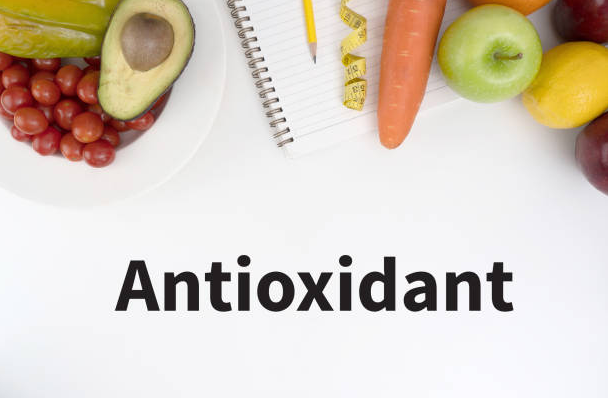Introduction
Antioxidants are substances that inhibit oxidation, a chemical reaction that can produce free radicals, leading to cell damage. Free radicals are associated with a range of chronic diseases, including cardiovascular disease, cancer, diabetes, and neurodegenerative disorders. This article will explore the role of antioxidants in managing these chronic diseases, their sources, and the latest research findings.
Understanding Oxidative Stress
Oxidative stress occurs when there is an imbalance between free radicals and antioxidants in the body. Free radicals are unstable molecules that can damage cells, proteins, and DNA. This damage contributes to aging and the development of various chronic diseases. Antioxidants neutralize free radicals, thereby reducing oxidative stress and potentially preventing or mitigating disease.
Types of Antioxidants
Antioxidants can be classified into two main categories:
- Endogenous Antioxidants: These are produced naturally by the body, including enzymes like superoxide dismutase (SOD), catalase, and glutathione peroxidase.
- Exogenous Antioxidants: These are obtained from the diet and include vitamins (such as vitamin C and E), minerals (like selenium), and phytochemicals (like flavonoids and carotenoids) found in fruits, vegetables, nuts, and whole grains.
The Role of Antioxidants in Chronic Disease Management
- Cardiovascular Disease
- Antioxidants like vitamin E and flavonoids from berries have been shown to improve endothelial function and reduce inflammation, which are crucial in preventing atherosclerosis. Studies indicate that a diet rich in antioxidants may lower the risk of heart disease and stroke.
- Cancer Prevention
- Antioxidants may help prevent certain types of cancer by protecting cells from DNA damage caused by free radicals. Research has linked high antioxidant intake, particularly from fruits and vegetables, with a reduced risk of several cancers, including lung, breast, and colorectal cancers.
- Diabetes Management
- Oxidative stress is involved in the development of insulin resistance and type 2 diabetes. Antioxidants such as alpha-lipoic acid and chromium have shown potential in improving insulin sensitivity and glucose metabolism in diabetic patients.
- Neurodegenerative Disorders
- Conditions like Alzheimer’s and Parkinson’s diseases are associated with oxidative stress and inflammation. Antioxidants like curcumin (found in turmeric) and resveratrol (found in grapes) have demonstrated neuroprotective effects and may help slow cognitive decline and improve brain health.
- Eye Health
- Antioxidants like lutein and zeaxanthin are essential for eye health and may reduce the risk of age-related macular degeneration (AMD). Studies suggest that a diet rich in these antioxidants can help preserve vision in older adults.
Sources of Antioxidants
To reap the benefits of antioxidants, incorporating a variety of foods rich in these compounds into the diet is essential. Some excellent sources include:
- Fruits: Berries (blueberries, strawberries, blackberries), citrus fruits, apples, and grapes are rich in vitamins C and E, flavonoids, and other phytochemicals.
- Vegetables: Leafy greens (spinach, kale), carrots, sweet potatoes, and bell peppers are packed with carotenoids and other antioxidants.
- Nuts and Seeds: Almonds, walnuts, and sunflower seeds provide vitamin E and other beneficial compounds.
- Whole Grains: Foods like oats and brown rice contain antioxidants and support overall health.
- Herbs and Spices: Turmeric, cinnamon, and garlic have potent antioxidant properties.
Latest Research Findings
Recent studies have highlighted the importance of antioxidants in chronic disease management. Some key findings include:
- A meta-analysis published in the American Journal of Clinical Nutrition found that higher dietary antioxidant intake was associated with a reduced risk of cardiovascular disease and all-cause mortality.
- Research in the journal Cancer Epidemiology, Biomarkers & Prevention indicated that higher intake of fruits and vegetables rich in antioxidants was linked to a lower risk of breast cancer among women.
- A clinical trial in Diabetes Care showed that supplementation with alpha-lipoic acid improved insulin sensitivity and reduced oxidative stress in patients with type 2 diabetes.
- Studies published in Neurobiology of Aging suggest that curcumin may protect against cognitive decline by reducing oxidative stress and inflammation in the brain.
Antioxidant Supplements: Pros and Cons
While antioxidants can be obtained from a balanced diet, many people turn to supplements. However, the effectiveness of antioxidant supplements is debated:
- Pros: Supplements can provide concentrated doses of antioxidants, which may be beneficial for individuals unable to meet their needs through diet alone.
- Cons: Some studies have raised concerns about high-dose antioxidant supplements, suggesting they may interfere with the body’s natural defense mechanisms and potentially increase the risk of certain diseases, such as lung cancer in smokers.
Conclusion
Antioxidants play a crucial role in managing chronic diseases by neutralizing free radicals and reducing oxidative stress. A diet rich in fruits, vegetables, nuts, and whole grains can provide the necessary antioxidants to support overall health and potentially lower the risk of chronic conditions. While antioxidant supplements may have their place, obtaining these compounds through a balanced diet is generally recommended. Continued research into the mechanisms and benefits of antioxidants will further enhance our understanding of their role in chronic disease management.
References:
- Liu, R. H. (2004). Potential Synergy of Phytochemicals in Cancer Prevention: Mechanism of Action. Journal of Nutrition.
- Halliwell, B., & Gutteridge, J. M. C. (2015). Free Radicals in Biology and Medicine. Oxford University Press.
- Renaud, S. C., & de Lorgeril, M. (1992). Wine, Alcohol, Platelets, and the French Paradox for Coronary Heart Disease. The Lancet.
- Sies, H. (2015). Strategies for Prevention of Stress-Induced Cell Damage by Dietary Antioxidants. Antioxidants.
